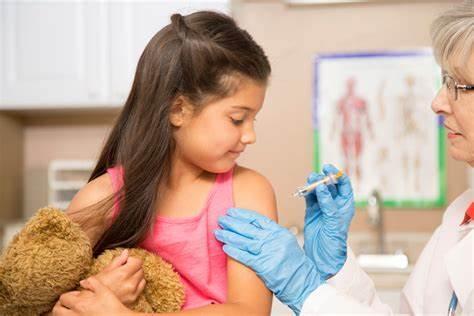
Hidden Halloween Allergy and Asthma Triggers Are Truly Frightful

Santa Monica, CA-
For some families, Halloween means being on guard for food allergy triggers like peanuts in tiny candy bars. Some fun-sized bars contain no labels to alert you to allergens, so parents must be on the lookout. The ingredients can change depending on the size, so while a full-size bar might be safe for someone with a food allergy, the smaller version could contain allergens not marked on the package. But peanuts in candy bars aren’t the only hidden allergens kids with allergies and asthma need to watch for to stay alert to Halloween frights.
“Halloween happens in the fall, so trick or treating involves being aware of fall allergies,” says allergist Dr. Bernard Geller, Allergy & Clinical Immunology Medical Group. “You need to add fall allergy triggers to your list of things to be aware of as you and your child with allergies or asthma prepare for Halloween fun. But your family can still get out and howl the night away. With the right preparations in place, you only need fear ghosts and goblins, not fall allergens like ragweed pollen and mold.”
The following four tips will help you prepare for Halloween and make sure your tiniest witches and super heroes are safe from allergic flares.
- The weather can pose a scare – Depending on where you live, Halloween can mean cold temperatures. A sudden change in weather can trigger an asthma attack, so be prepared. Consider an extra layer under or over the costume for your little ones with asthma. In addition, dry, windy weather is not kind to people with allergies, as the wind spreads pollen and mold. Keep an eye on pollen forecasts to see if there’s an abundance of pollen in the air. Consider taking allergy medications before you head out for the night.
- Speaking of fall allergens – Fall is the time when ragweed can really make allergy sufferers miserable. Ragweed, or any pollen that triggers your child’s fall allergy symptoms, needs to be kept out of your house. Leave shoes at the door, and have kids take a shower, wash hair and change clothes after they’ve been playing – or trick or treating – outdoors. If your child takes allergy medications, they should continue their medications for two weeks after the first frost. Both nasal and eye symptoms related to ragweed allergy can linger after pollen is no longer in the air.
- Don’t let a haunted house take your breath away – Haunted houses are meant to be scary, but did you know intense emotions like fear can cause asthma attacks? A physical display of strong emotion that affects normal breathing patterns — such as shouting, crying or laughing — can be an asthma trigger. Haunted houses can also feature smoke machines, and smoke of any kind is dangerous for those with asthma. Consider hosting your own Halloween party and steer clear of anything that causes intense emotions like fear. If you do go to a haunted house, be sure to bring inhalers.
- Make costumes a treat, not a trick – Whether the costume is store-bought or homemade, it can contain hidden allergens like latex, nickel or even dust. If your child has a latex or nickel allergy, test all the costume parts in advance to make sure your child’s skin doesn’t have a reaction. Jewelry can sometimes contain nickel, and masks can contain latex. If you’re bringing a costume down from the attic, make sure it’s not covered in dust if your child suffers from dust allergy. And if you’re storing costumes for next year, consider using airtight containers to keep dust out.
If allergies or asthma are holding your child back, it’s time to take control. See an allergist for expert care and relief. Consult our website www.SneezeWheeze.com for more information, or reach us by telephone: (310)828-8534 or by e-mail: FrontOffice@allergyandclinical.com.
Dora Afrahim, MPAP, PA-C
Allergy & Clinical Immunology Medical Group
You Might Also Enjoy...


FDA Approves the First Peanut Allergy Treatment

Telehealth: The Advantages of Telemedicine

Four Tips to Help you Stay Calm and Ease Sniffling, Sneezing, & Wheezing this Holiday Season

Keeping Allergies and Asthma at Bay is the Best Gift



